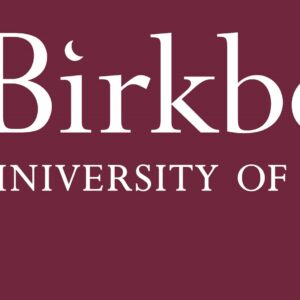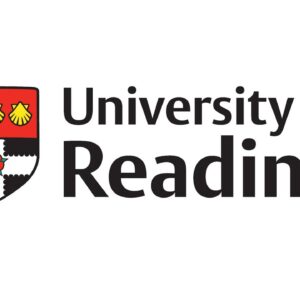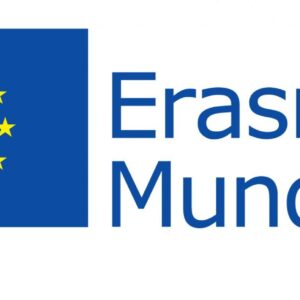Study in Germany 2025 With Full Scholarship: Complete Guide to 100% Free Education & Scholarships
Introduction: Why Study in Germany in 2025?
Study in Germany 2025 With Full Scholarship. Germany is one of the most attractive study destinations for international students, offering high-quality education at affordable costs. As of 2025, Germany continues to offer its renowned public education system where most universities charge little to no tuition fees for both domestic and international students. This makes it one of the few countries where higher education can be accessed without hefty financial barriers, making it an ideal choice for those seeking a world-class education on a budget.

In addition to its tuition-free education system, Germany has a robust array of scholarships and financial support options for international students. The German academic environment emphasizes research, innovation, and academic rigor, making it an ideal destination for students in diverse fields, including engineering, medicine, technology, business, and the arts.
This guide provides a comprehensive roadmap for studying in Germany in 2025, covering everything from scholarships and university admissions to visa requirements and post-graduation opportunities. Whether you are considering undergraduate, graduate, or postgraduate studies, this guide will equip you with the essential information you need to make your dream of studying in Germany a reality.
Full Scholarship Programs-Study in Germany 2025 With Full Scholarship
1. DAAD Scholarships
The German Academic Exchange Service (DAAD) is the primary provider of scholarships for international students wishing to study in Germany. DAAD offers a wide range of scholarships for both undergraduate and postgraduate students across various fields. These scholarships are awarded based on academic merit and cover full tuition, living expenses, travel costs, and health insurance.
DAAD Scholarship Categories:
- Masters and PhD Scholarships: For international students pursuing master’s and doctoral degrees in various disciplines.
- Research Grants: For researchers who want to carry out research projects in Germany.
- Short-term Scholarships: For students who wish to attend summer schools, internships, or short-term academic programs in Germany.
Eligibility Criteria:
- Academic excellence and strong academic background.
- Proof of language proficiency in English or German (depending on the program).
- Specific eligibility criteria depend on the scholarship program and degree level.
Application Process:
- Applicants must submit an online application, including a statement of purpose, academic transcripts, recommendation letters, and a detailed research proposal (for research-based scholarships).
Move To Iceland For Free in 2025
2. Erasmus Mundus
The Erasmus Mundus program is a joint international initiative by the European Union that offers scholarships for students to study in multiple European countries, including Germany. This program aims to enhance the quality of higher education through joint master’s and doctoral degrees offered by a consortium of universities.
Erasmus Mundus Scholarships:
- These scholarships are available for students pursuing joint master’s and doctoral programs across various disciplines.
- The program provides funding for tuition, travel, and living expenses.
Eligibility:
- Open to both European and non-European students.
- A strong academic record and motivation to study in a multicultural environment.
3. Deutschland Stipendium
The Deutschland Stipendium (Germany Scholarship) is a national scholarship program that provides financial support to highly talented students from all over the world. The program is supported by the German government and private donors, including corporations, foundations, and universities.
Key Features:
- Provides €300 per month for one year, which can be extended.
- No need to repay the scholarship.
Eligibility:
- Applicants must demonstrate academic excellence and strong personal commitment (e.g., voluntary work or leadership roles).
4. Excellence Initiative
The Excellence Initiative is a program launched by the German government to support the development of top-level research at German universities. This initiative funds graduate students and researchers at the participating universities.
Eligibility:
- Available to both German and international students.
- Must be pursuing graduate or doctoral studies in the fields of science, engineering, humanities, and social sciences.
5. State-Specific Grants
Several states in Germany offer their own scholarships for international students. These state-based grants are designed to help students with their living expenses while they study in Germany.
Notable Programs:
- Bavarian Government Scholarships: For international students studying in Bavaria.
- Berlin Scholarship Program: For students attending universities in Berlin.
Eligibility:
- Each state may have specific eligibility criteria based on academic performance and personal circumstances.
6. University Scholarships
Many German universities offer their own scholarships to international students. These can range from partial to full scholarships, covering tuition fees, living expenses, or travel costs.
Top Universities Offering Scholarships:
- LMU Munich
- University of Heidelberg
- University of Stuttgart
University Application Process-Study in Germany 2025 With Full Scholarship
1. Requirements
Before you apply to study in Germany, you should be aware of the general admission requirements for universities. The key steps to ensure you meet the eligibility criteria include:
- Academic Qualifications: German universities typically require a secondary school diploma equivalent to the German Abitur for undergraduate programs. For graduate programs, a bachelor’s degree in a relevant field is necessary.
- Language Proficiency: Many programs are offered in German, although there are also a number of English-taught programs. You will need to demonstrate proficiency in the language of instruction.
2. Document Preparation
You will need several key documents to apply to German universities:
- Transcripts and Diplomas: Certified copies of your academic transcripts and diplomas.
- Language Proficiency Certificates: Depending on the program, you may need to provide TestDaF, DSH, TOEFL, or IELTS scores.
- Curriculum Vitae (CV): A professional resume detailing your academic background, work experience, and skills.
- Motivation Letter: A personal statement explaining why you want to study in Germany and why you have chosen your particular course.
- Recommendation Letters: Letters from academic or professional references.
3. Language Proficiency
Many programs require students to have proficiency in the German language, particularly for undergraduate studies. However, several universities offer English-taught programs, and for those, proficiency in English (TOEFL/IELTS) is required.
German Language Requirements
Germany offers a variety of language proficiency exams for students who wish to demonstrate their German language skills.
TestDaF (Test of German as a Foreign Language)
The TestDaF is one of the most common language proficiency exams accepted by German universities. It assesses reading, listening, writing, and speaking skills.
Requirements:
- Level 4 in all sections is typically required for university admission.
DSH Examination (German Language University Examination)
The DSH is a German language exam specifically designed for university-bound international students.
Requirements:
- Students must pass at least the DSH-2 level to be eligible for university admission.
Visa Application Process-Study in Germany 2025 With Full Scholarship
One of the most important steps in your journey to study in Germany is obtaining a student visa. Here’s what you need to know:
1. Student Visa Requirements
To apply for a student visa for Germany, you will need to meet certain criteria:
- Proof of admission to a German university.
- Proof of financial resources (approximately €10,000 per year).
- Health insurance coverage.
2. Document Checklist
- Valid Passport: Ensure it’s valid for at least six months beyond your intended stay.
- University Acceptance Letter: You need a confirmed offer from a recognized German university.
- Proof of Financial Support: Bank statements or scholarship award letters that prove you can cover living expenses.
Living in Germany
1. Accommodation Options
Student housing in Germany can be found in university dormitories, shared apartments, or private rentals. University dorms are generally the most affordable option, though they can be competitive to get.
2. Health Insurance
Health insurance is mandatory for all students in Germany. If you’re a non-EU student, you must show proof of health insurance before applying for a visa.
Financial Planning
While tuition fees may be minimal or non-existent in Germany, living expenses can add up. Here’s a breakdown of what you can expect:
1. Living Costs
On average, students in Germany spend between €700 and €1,200 per month on accommodation, food, transportation, and other living expenses.
2. Student Benefits
Students enjoy a range of benefits, including discounts on public transportation, museum admissions, and other cultural activities.
Academic Programs
1. Bachelor’s Degrees
Germany offers bachelor’s programs in almost every field. Some of the most popular fields of study include engineering, business, economics, and social sciences.
2. Master’s Programs
Germany is home to many prestigious universities offering graduate programs in a wide range of fields. Many programs are offered in English, especially in the fields of engineering, business, and sciences.
City Guides
Germany is home to several vibrant cities with diverse student populations. Some of the most popular cities for international students include:
1. Munich
- Known for its high quality of life and proximity to major tech and automotive companies.
2. Berlin
- A cosmopolitan city with a growing tech scene and an extensive range of cultural activities.
FAQs
- Is studying really free in Germany?
- Yes, public universities in Germany offer tuition-free education for both domestic and international students. However, there are some administrative fees.
- What German level is needed?
- For programs taught in German, a B2 or C1 level is usually required. For English programs, proficiency in English is required.
Conclusion
Studying in Germany in 2025 presents an incredible opportunity for students to pursue world-class education while experiencing one of Europe’s most innovative and culturally rich nations. With free education, numerous scholarships, and an active student support network, Germany continues to be an ideal choice for students worldwide.






